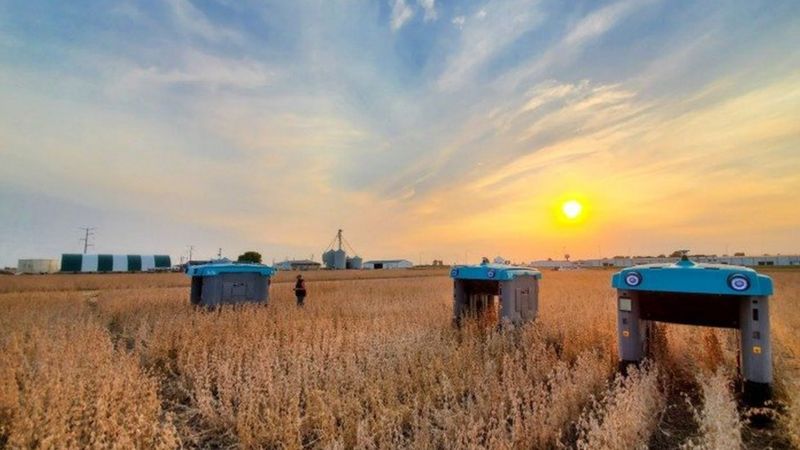If you thought Google only owns your smartphone data, internet browser data, your favorite video platform (YouTube is Google owned), and your entire search history on the web, well, you were wrong.
Today’s news is about Google getting “real”, i.e. about the Alphabet company getting a foothold in the real world. Enter Mineral-crop inspecting robot, a prototype of sorts that is designed to “help” farmers by inspecting individual plants in a field and reporting back to base, with the end game being improved crop yields, or so we’re told.
However, the Google robot, just like Google Street View, will end up with collecting huge amounts of data about agriculture. The robot inspectors will roll through wheat fields on upright pillars over plants, without damaging them, and they’re built by Project Mineral, a subsidiary of Alphabet X. Elliott Grant, the project leader, has said in a blog post that, let us quote:
“We hope that better tools will enable the agriculture industry to transform how food is grown”.
The main goal of Project Mineral is to make food growth more sustainable and efficient by assuring every single plant exactly the nutrition it needed by constant and individual monitoring, or something along these lines. Basically, this is high-tech agricultural micro-management, but there’s also a GMO angle:
“What if we could untangle the genetic and environmental drivers of crop yield?”
wrote Mr. Grant. Farmers will have detailed information about the weather and the soil content, while the Google robot will report back home how plants are growing and responding to the environment. Mineral Project said that:
“Over the past few years, the plant buggy has trundled through strawberry fields in California and soybean fields in Illinois, gathering high quality images of each plant and counting and classifying every berry and every bean,”
Thought beancounting was boring? Our AI model brings some color to the field with a "disco vision" effect that makes it easier for growers to see and count how many soybeans are growing (and grooving) above-ground. https://t.co/S4I9kgFfbc pic.twitter.com/Fkkx8Uei26
— The Team at X (@Theteamatx) May 26, 2020
Beside bean counting, the Google robot can record info about plant height, leaf area and fruit size, the data is then downloaded into an AI-powered machine learning system, which analyzes patterns and provides advice to farmers for improved yields etc.
Putting robots out in the field makes a lot of sense, as they can also check for infestation, make sure the crops are picked and planted at the right time, not to mention they’re efficient and effective.
The company is currently working with farmers in the US, Argentina, South Africa and Canada, but there’s no explicit timeline/plan to release the Google farmer as commercial product.
